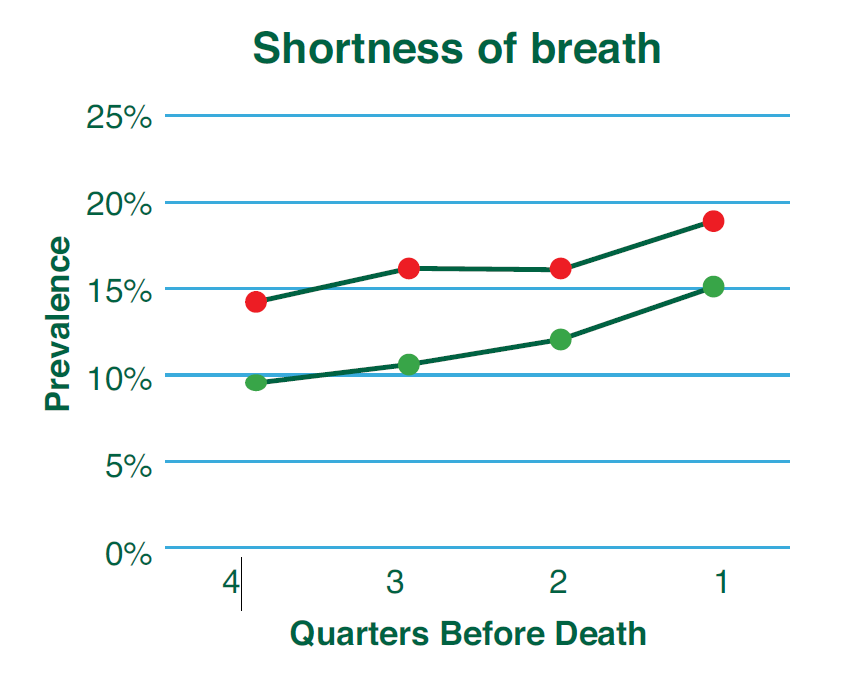Improving Work Environment
Feeding TREC Data Back to Managers to Improve Work Environment
Uptake of research is slow, estimated at around 19 years from discovery to use. Uptake is likely even slower in the long-term care sector, which was neglected for longer by researchers and others. Meanwhile we have more reports on harmful effects of not applying the best research evidence on quality, safety, effectiveness and efficiency.
The INFORM study (Improving nursing home care through feedback on performance data) develops strategies to effectively tailor and feed back research data to long-term care managers, using a goal-directed approach. Determining the best methods to feed back data will be a major advance in applying research more easily, for better quality in long-term care.
INFORM aims to improve performance by supporting managers as they use TREC research findings. TREC data are applied to improving work environments and making positive changes on care units.
The Bow View Manor in Calgary, a long-term care facility operated by The Brenda Strafford Foundation, was already part of the TMS when the opportunity arose to participate in INFORM. Unit-level data from the TMS showed that care aides at the manor felt they had little opportunity to participate in formal meetings about resident care. Management saw INFORM as a tool to address this concern.
A team of two program managers, a care aide, a nurse and the director of nursing worked with the TREC team to develop a goal: at least one care aide would attend 100% of multidisciplinary care plan reviews. This goal was achieved. Follow-up showed that care aides attending the reviews felt that their opinions were valued and they wanted to continue attending.
“[INFORM] gave care aides a chance to discuss what they think is important. Care aides are the majority of the work force in long-term care and it is really important that they are empowered to make a difference. They are essential to improving quality of care for residents.”
NAVJOT VIRK, RESEARCH & INNOVATIVE PRACTICE COORDINATOR THE BRENDA STRAFFORD FOUNDATION, CALGARY
“This was not just about involving the care aides; it was about making sure they were actively engaged,” says Navjot Virk, research and innovative practice coordinator with The Brenda Strafford Foundation. The Foundation is now interested in finding new ways to integrate care aides in everyday care and in other initiatives to recognize the great work they do. “There is an absolute commitment organizationally and we are talking of expanding this initiative to our other sites.”
INFORM recently wrapped up in 35 nursing homes in British Columbia and Alberta. It will follow these sites to assess if outcomes change or stay steady after a year.
Findings
TREC research shows that residents have lower levels of symptoms such as pain and shortness of breath in nursing homes with more positive work environments. This connection has never before been measured over the long term in Canada.


Starting a Conversation: Using TREC Data on Tasks and Interactions
Wendy Calhoun is director of operations at Kaigo Senior Living Group in Interior Health, BC. Her organization has been a TREC nursing home for five years.
Calhoun saw immediate impact after TREC came to Kaigo for data collection: staff thanked her for allowing them to be involved. “It meant a lot that TREC involved all staff and took the time to sit down and talk to them,” she remembers. “The staff really appreciated that people wanted to hear what they had to say.”
TREC’s data are invaluable as far as Calhoun is concerned. When Kaigo received its facility feedback report she was most interested in the data about tasks and interactions. “What we saw is that tasks get done but there was never enough time for interactions with residents. It shows how task oriented we are.” The information has started an important conversation that includes ideas on transferring some of the care aides’ tasks to housekeeping, allowing the aides to give more care.
Page Options


